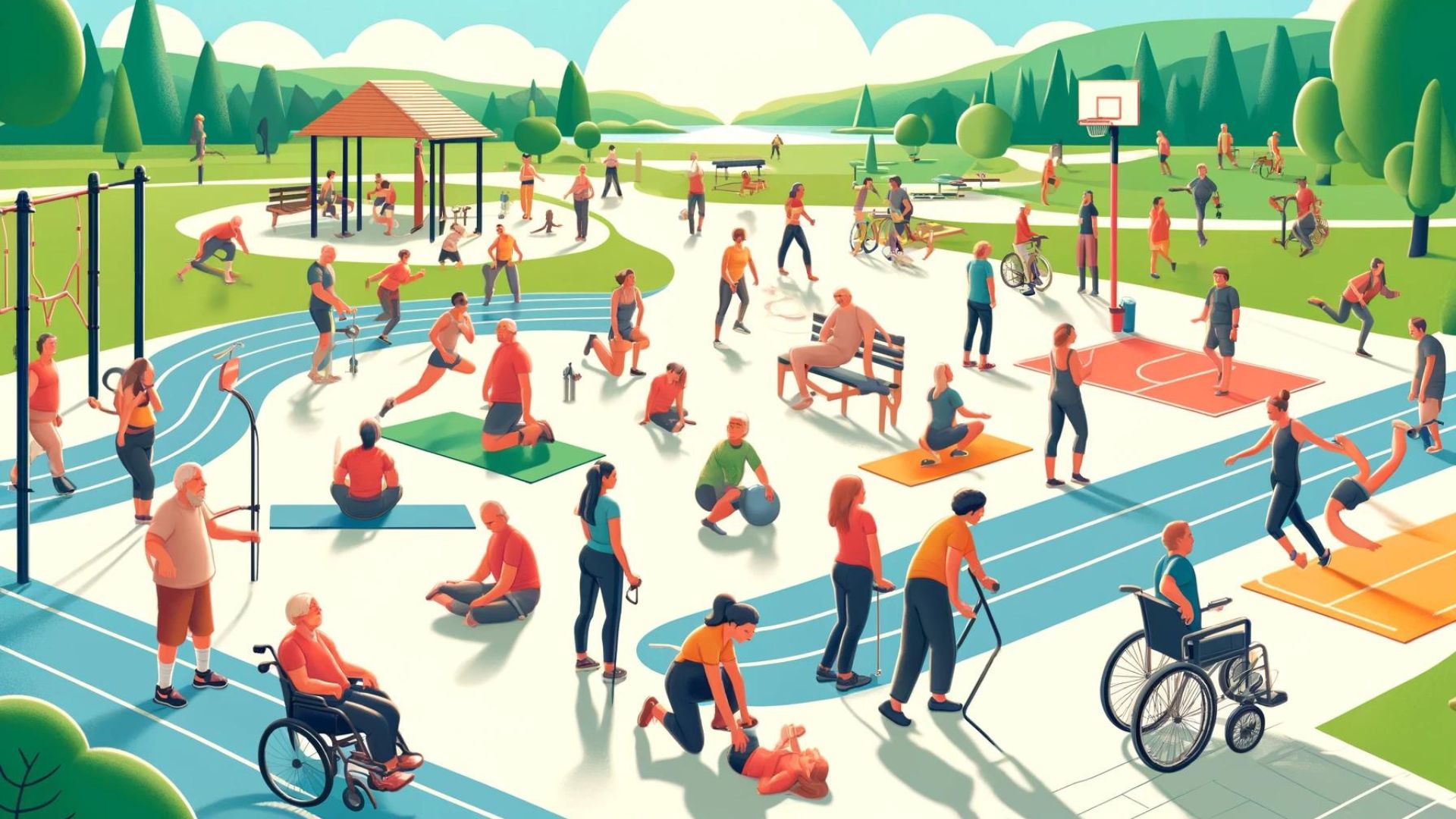The Role of Fitness in Managing Chronic Conditions
When you’re living with conditions like arthritis, fibromyalgia, diabetes, or depression, the idea of exercising might feel overwhelming. “Do I even have the energy?” “Will this just make it worse?” These are totally understandable concerns.
Here’s the good news: the right kind of exercise can actually be a game-changer, and it’s not about becoming a gym rat. Think of it this way:
- Managing Pain: Regular movement counterintuitively reduces pain in many conditions. It helps lubricate joints, strengthen supporting muscles, and even influence how your brain interprets pain signals.
- Energy Booster: While it might feel tempting to rest when you’re tired, the right exercise can actually increase your energy levels over time by improving fitness.
- Mood Lifter: Exercise is nature’s antidepressant. It releases feel-good chemicals and reduces stress – crucial when dealing with chronic illness.
- Building Resilience: A body that can move a bit better and a mind that feels a bit stronger – this helps you cope with the day-to-day ups and downs of your condition.
Real-Life Impact
Think of the person with severe arthritis whose daily walks led to needing less pain medication. Or the one with chronic fatigue syndrome who carefully increased their activity and saw sleep improve. Picture the person with depression whose mood noticeably lifts after a workout. These real-life stories point to the science-backed power of exercise.
Getting Started: Tips & Tricks
- Talk to Your Doctor: They’re your partner! Discuss what’s safe and best based on your specific condition.
- Start Slow & Low Impact: Even a few minutes of gentle movement counts. Think water aerobics, tai-chi, or a short walk.
- Listen to Your Body: Some pain is okay, but it shouldn’t be severe or last long after exercise.
- Find What You Enjoy: This makes it more sustainable! Maybe it’s dancing around your kitchen or chair exercises.
- Seek Support: Physical therapists can tailor exercise plans, and there may be classes geared toward people with chronic conditions.
Small Steps, Big Impact
Imagine a future with less reliance on medication, more days feeling a bit better, or a mood a bit more stable. Exercise helps make that possible.
Ready to get moving? Here’s how:
- Choose one small thing: 5 minutes of stretching, a trip around the block – start where you are today.
Remember, this is about making exercise work for you, not the other way around. With patience and guidance, you can reclaim a sense of power over your condition and improve your quality of life along the way.
Why Should You Care?
- Managing Your Health: If you have a chronic condition, exercise isn’t just about fitness; it’s essential medicine, impacting symptoms, everyday abilities, and emotional well-being.
- Preventing Further Decline: Regular activity can help manage conditions, potentially slowing their progression and improving long-term outcomes.
- Empowerment: It offers a sense of control within the often unpredictable journey with chronic illness, improving both physical and mental aspects of your life.
Key Takeaways
- Exercise can significantly improve pain, fatigue, mood, and overall quality of life for people with chronic conditions.
- It’s about finding what works for you – start small, listen to your body, and choose activities you enjoy.
- Your doctor is your partner in creating a safe and effective exercise plan.
Keywords and Definitions
- Chronic Condition: A long-term health issue that often requires ongoing management (e.g., diabetes, arthritis, heart disease).
- Exercise: Planned, structured bodily movement aimed at improving fitness or health.
- Pain Management: Strategies for reducing or coping with pain, including both medication and non-medication approaches.
- Fatigue: Extreme tiredness or lack of energy that isn’t fully relieved with rest.
- Mood: A prevailing emotional state (sad, happy, anxious, etc.). Exercise can have mood-boosting effects.
- Arthritis: Joint pain and inflammation.
- Fibromyalgia: Widespread pain, fatigue, and cognitive difficulties.
- Diabetes: A condition affecting how your body regulates blood sugar.
- Depression: A mental health condition involving prolonged sadness, loss of interest, and changes in energy and concentration.
- Physical Therapist: Healthcare professional specialized in helping people improve movement and manage pain.
FAQs
- What if exercise hurts? Some discomfort is normal, but work with your doctor to distinguish between “good” pain and when you should stop.
- How do I find safe exercises with my condition? Seek guidance from a specialist (like a physical therapist) for personalized recommendations.
Myth Buster
- Myth: Exercise will exhaust me and make my condition worse. Reality: The right kind of exercise, done gradually, actually improves energy levels and reduces many symptoms over time.
Let’s Talk
- Do you currently use exercise to help manage a chronic condition? If so, what has your experience been like?
- What’s the biggest obstacle you face in trying to be more active?
- If you could ask a healthcare professional one question about exercise with your condition, what would it be?
Let’s keep the conversation going! Share your thoughts and experiences in the comments below.










0 Comments